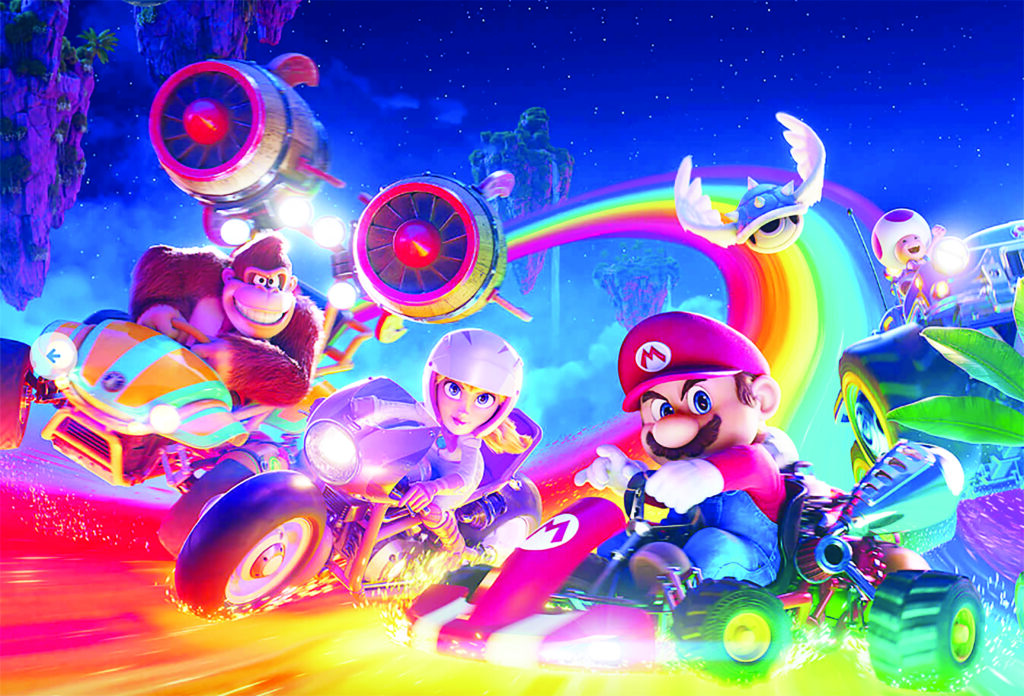When they say cinema is dead, the desolate graveyard that could stand as proof of this theory involves me regularly alone at the movie theatre, wondering if anybody else has survived the night.
Generally, to see people at the movies on a weekday, other than on half-price Tuesdays, is like encountering someone in the desert. A sighting met with as much suspicion as unspoken delight.
As I’ve become quite accustomed to pretending Windhoek’s sheer lack of moviegoers is actually just my enjoying a private screening, the thoughts that go through my mind, when happening upon a fellow cinema survivor, are myriad.
“What are you doing here? So what, no job? Not me having to spend two hours in the dark with someone who may be a serial killer, noisy popcorn eater or worse.”
But then also “Wow! People still go to the movies? Wait! Is this a meet-cute?”
This reality and my resulting mental gymnastics are why I’m taken aback as I walk into a Ster-Kinekor showing of ‘The Super Mario Bros.’ (2023) at Grove Mall.

While audience attendance isn’t exactly ‘Black Panther’ (2018), the theatre is unusually busy as elder millennials shepherd their young kids to seats soon to be filled with popcorn, and insouciant teens juggling the contents of a small sweet factory settle in by the half row.
It’s a nice change from feeling like the last woman in the world.
One made more so by the fact that Super Mario is such an intergenerational gem.
To watch the kids watching and geeking at the sight of Mario, Luigi, Princess Peach, the mushrooms, Donkey Kong and Bowser is to flashback to my own childhood.
Back then, a chance to play Super Mario on my brothers’ 8-bit video game console was either a rare treat or the sweet fruit of espionage, bribery or begging.
As child spies, my sisters and I would take turns keeping watch for my brothers’ return at the living room window while the other two played as many levels of Mario as we could, bickering about who had to be Luigi all the way.
Regarding primary school corruption, the coffers were all but empty, but a game of Super Mario could be negotiated in exchange for chores, half a bar of Tempo or an agreement not to tell mum and dad about some mishap that would no doubt end in tears.
While begging was least likely to earn us a game, my sisters and I still put in the work and the whining voices. My older brothers were no evil Bowsers, but there had been incidents.
A glass of Oros accidentally spilled all over a brand new video game console. My sister almost burning the living room down after leaping out of a blanket to join some shenanigans while the discarded and highly flammable material got cosy with a bar heater. The many, many times we didn’t pack the game away before my parents got home and we all got into trouble for disobeying the rules, rotting our brains and being dunderheads.
Looking back, it all sounds a little dramatic but being a kid growing up at Oranjemund in the 90s largely was. More on this in the memoir.
In the present day, it’s bizarre and wonderful to think that the random Italian plumbers that played such a huge role in my early childhood are still as beloved as they were when I was a kid.
So much comes and goes, disappearing into a past that the generation that comes after can scarcely fathom but, of all things, Super Mario sticks.
It makes me smile in the low cinema light. I’ve come alone as I usually do. I sit on the edge of the aisle in my unassigned media seat to make space for the groups and feel tenderly connected to all the strangers in the dark.
I’m an adult, I’m a child, I’m a moviegoer and for once, without complaining, I’ll even be Luigi.
– martha@namibian.com.na;
Martha Mukaiwa on
Twitter and Instagram;
marthamukaiwa.com
Stay informed with The Namibian – your source for credible journalism. Get in-depth reporting and opinions for
only N$85 a month. Invest in journalism, invest in democracy –
Subscribe Now!






